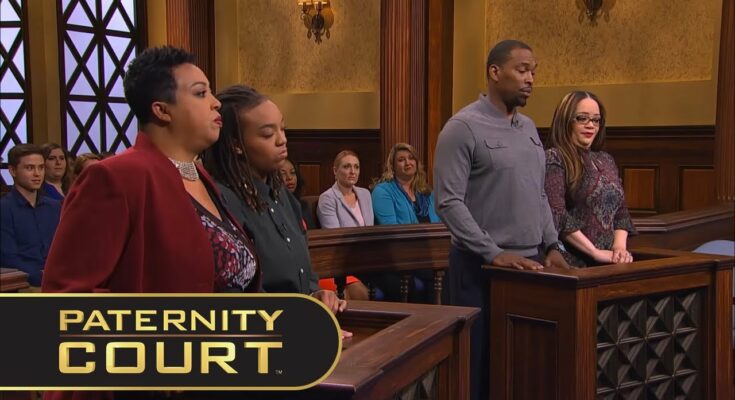The video titled “20 Years of Questions Leads to Paternity Test” is an episode from the Paternity Court show. The case, Baylor v. Childs, involves a woman named Allen who had a brief affair with Childs and became pregnant with her daughter, Baylor. Childs initially acknowledged paternity but later denied it, claiming that Allen was involved with other people at the time of conception. Allen intends to prove that Childs is Baylor’s father, while Childs and his wife deny it.
The court hearing becomes heated with accusations and counter-accusations. Allen blames Childs’ wife for influencing him to deny paternity, while Childs accuses Allen of not getting a DNA test sooner. The judge tries to understand their relationship history, and it’s revealed that they started having sex casually after being introduced through mutual friends. Allen became pregnant, and rumors spread that Childs was the father.
Allen admits to telling Childs that there was a possibility that the child might not be his and that there were other potential fathers. As she recalls, “I told him. I said, ‘She may be your child.’ I told him, I said it’s a possibility that she may… That she may not be yours?” Childs recounts a conversation where he suggested getting a DNA test, but Allen disappeared for months after that. Allen admits to informing other potential fathers about the situation but insists that Childs is the father because she was involved with him first.
The case takes a turn when it’s revealed that Allen had a DNA test with another man who reached out to Baylor claiming to be her father. However, Allen denies considering this person as a potential father. Baylor found out at age 14 that her sister’s father was not her biological father. She later found Childs on Facebook and he did not deny being her father.
Childs claims he attempted to meet Baylor at the age of nine but was not informed of his existence until she was 14. Baylor does not remember Childs because she was only nine years old at the time. Childs suggests pursuing child support if he is the father, but Allen did not pursue child support and did not take a DNA test. As Childs puts it, “I just wanted to see it through, Your Honor. I’m saying like this. If it was such a struggle for her to raise her by herself, and you know where I am, if I’m such a bad person, go get child support. When we went to child… For child support, I would have got a DNA test. And this would have been taken care of years ago.”
In the end, the DNA test results reveal that Childs is not Baylor’s biological father. Allen apologizes to Childs and his wife, saying, “I’m very sorry, Ms. Baylor. It’s okay, Your Honor. You know at the same time… It’s okay, honey. Now, I’d like to apologize to the both of you… for that. And we could move on.” The court session concludes with the judge offering counseling and resources to the involved parties. Judge Lake advises Allen, “I hope you will continue to answer her questions no matter how difficult, Ms. Allen. And do whatever is necessary to help her identify and find her biological father, all right?” She also comforts Baylor, saying, “Don’t ever feel like this is your fault, don’t ever feel like you are to blame, and I want you to know how much you are worth it. You are a strong girl. But it’s okay in life to say, ‘Mom, this really hurtsme. I need you to help me.'”
The video is a testament to the importance of honesty, responsibility, and the pursuit of truth in matters of paternity. The episode serves as a stark reminder of the complexities of personal relationships, the consequences of our actions, and the importance of truth in resolving disputes. It provides a glimpse into the human stories behind paternity disputes, highlighting the emotional turmoil, the quest for truth, and the impact on the children involved. The episode ends with a sense of closure, yet the emotional journey for the parties involved is far from over, as they navigate the aftermath of the paternity dispute.



